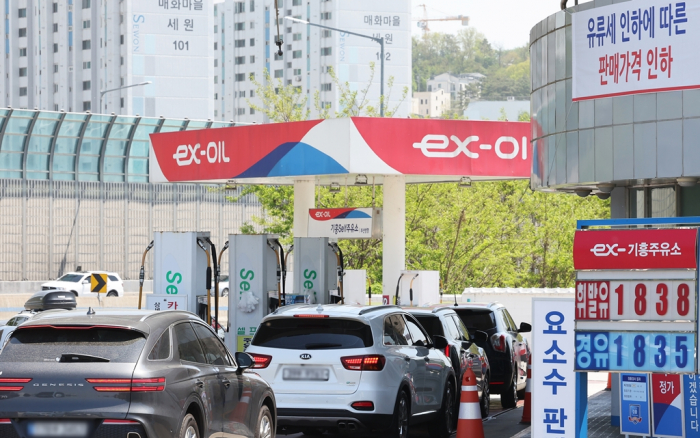Economy
Korea April inflation hits 13-1/2-year peak; bond yields up
Consumer prices up 4.8% in April, the fastest pace since October 2008; three-year government bond yield at three-week high
By May 03, 2022 (Gmt+09:00)
2
Min read
Most Read
LG Chem to sell water filter business to Glenwood PE for $692 million


Kyobo Life poised to buy Japan’s SBI Group-owned savings bank


KT&G eyes overseas M&A after rejecting activist fund's offer


StockX in merger talks with Naver’s online reseller Kream


Mirae Asset to be named Korea Post’s core real estate fund operator



South Korea’s consumer prices in April rose at the fastest pace since the 2008-09 global financial crisis, reinforcing expectations of further rate hikes and raising government bond yields.
Inflation in Asia’s fourth-largest economy picked up pace on surging commodity prices amid the war in Ukraine, increasing domestic consumption with lifted COVID-19 restrictions, and a weakening won currency.
Consumer prices soared 4.8% last month from a year earlier, the largest growth since October 2008, government data showed on Tuesday.
Government bond yields rose across the board with the highly liquid three-year debt yield up 5.3 basis points to 3.139%, the highest since April 11 when the yield closed local trade at 3.186%, the highest since July 2012, according to the Korea Financial Investment Association.
INFLATION TO STAY HIGH FOR THE TIME BEING
The country expected inflation to remain high for the time being, reversing its earlier view of stabilization in the second half.
“It is unlikely for prices of industrial goods such as petroleum products to fall, while prices for dining out recently rose significantly,” Eo Woon-sun, a senior Statistics Korea official, told reporters. “A weaker won is another key factor to raise import prices.”
Prices of petroleum products jumped 34.4% in April with diesel and gasoline prices up 42.4% and 28.5%, respectively, as Russia’s invasion of Ukraine ramped up crude prices. Electricity, gas and water supply prices rose 6.8 percent as Korea Electric Power Corp. hiked electricity rates.
Personal service prices grew 4.5% with dining out up 6.6%.
MORE INTEREST RATE HIKES
The central bank held a meeting to tackle inflation earlier in the day, expecting consumer inflation to remain in the 4% range for the time being.
The Bank of Korea may raise interest rates again in a monetary policy meeting on May 26 after an unexpected hike last month, some forecast.
Bank of Korea Governor Rhee Chang-yong told reporters on April 25 he was more worried about inflation than economic growth.

Experts predict the BOK will raise interest rates further to curb inflation as the country has few options to stabilize prices.
“There are not many policy options as the cause of inflation is from other countries,” said Sung Taeyoon, a professor at Yonsei University’s School of Economics in Seoul. “It will be hard to curb inflation without reducing liquidity through interest rate hikes.”
Some analysts, however, said the BOK may not raise borrowing costs for a second straight month as it warned of a cut in its economic growth forecast to mid-to-high 2% from 3%.
Write to Jung-hwan Hwang at jung@hankyung.com
Jongwoo Cheon edited this article.
More to Read
-
 EconomyKorean won at 2-year low, adding to inflationary pressure
EconomyKorean won at 2-year low, adding to inflationary pressureApr 28, 2022 (Gmt+09:00)
2 Min read -
 Central bankBOK unexpectedly hikes interest rate as inflation accelerates
Central bankBOK unexpectedly hikes interest rate as inflation acceleratesApr 14, 2022 (Gmt+09:00)
2 Min read -
 EconomyKorea March inflation at 10-year high; bond yields surge
EconomyKorea March inflation at 10-year high; bond yields surgeApr 05, 2022 (Gmt+09:00)
3 Min read -
 Central bankBOK chief nominee to curb household debt through interest rates
Central bankBOK chief nominee to curb household debt through interest ratesApr 01, 2022 (Gmt+09:00)
3 Min read
Comment 0
LOG IN


